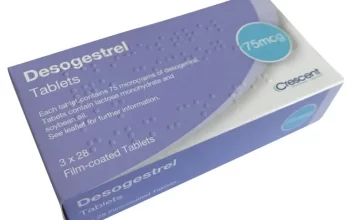When you’re recovering from a drug or alcohol addiction or assisting an individual in doing so, your sole goal may be on removing these toxins from the life’s existence. While this goal is imperative in successfully completing treatment, so is implementing other healthy strategies. Integrating a fitness routine for individuals in recovery is a smart move for many reasons.
1. It encourages physical health.
Recovering from addiction is important, and one of the reasons why is to better your physical health. You want to learn how important the health of your body is. When your body is suffering, so many other parts of your life can as well. Therefore, engaging in a fitness routine helps to remind you that your body is important. Fitness programs developed by professionals can help you to combat your specific physical struggles and to build a better body. While a physical-fitness routine can be about losing weight, it can also focus on developing strength, agility and other desirable characters.
2. You can feel empowered.
When you’re fighting with an addiction, you may feel as though you’re in the most difficult battle of your life. Having your mind set on this one goal can keep you focused, but you also might have days when you feel as though you aren’t reaching your full potential. Working out can remind you of how powerful you are. For example, if you feel lost in your mental and emotional progress toward recovering from addiction, you can go for a run, get on the treadmill or take a dance class to remind yourself of the power and strength that you possess. This physical motivation can seriously encourage you to continue on your journey.
3. Exercise can distract you from triggers.
During your time in recovery, you are likely going to learn all about your triggers. The triggers in your life can cause you to engage in alcohol or drug abuse. For example, when you encounter a certain individual, you could feel a host of negative emotions come to the surface. These emotions might stay with you. When you return home, you then may abuse drugs or alcohol because the emotions are still present. By learning about fitness, you can turn toward healthy physical activities instead. When you encounter one of your triggers in the future, you may go for a run around the neighborhood to handle the energy that you have.
4. Fitness routines offer an outlet.
At some point in your life, you’ve probably had the experience of feeling really angry or upset. Instead of yelling or getting into a fight, you went for a walk. While you may have stored this memory in the back of your mind, use it as inspiration now. In the more recent past, it’s possible that you would engage in drug or alcohol abuse to let go of some of your anger. Once you learn about the fitness activities that work for you, you can turn to them instead.
5. You’ll get a natural high.
Even if actually starting a fitness routine is difficult, you probably recall positive feelings that arise after engaging in exercise. Exercise releases endorphins, which can make you feel uplifted. Instead of looking toward drugs or alcohol to provide you with these pleasant feelings, you can rely on your own body to do so. In addition to feeling good, you’ll know that you’re doing so in a way that is healthy for your body, which can inspire you to come back for more.
6. Routines are useful.
Many people have had the experience of sitting around and doing nothing, which ultimately led them to abuse drugs or alcohol. Think about the last time that you had a real routine in your life. Even if it did not entirely prevent you from using or abusing substances, it likely did offer some level of structure that you have lost in recent months or years. Bringing fitness into your life can help you to get back into a routine. For example, you might wake up early in the morning to take classes at the gym before work, or you may plan some elements of your day around when you can get the best spot at the treadmills. Routines can help you to stay on track.
7. You can go outside.
While people do tend to think of the gym when they envision physical-fitness routines, you don’t necessarily have to take that path. You may work with your trainer or adviser to select exercises that allow you to explore more time outdoors. You could run around the track several times per day, or you could look into yoga or aerobics classes that are held outdoors. Being outside has many benefits to offer to people. As you are working on getting your body into shape, you can also absorb the mental and emotional benefits that nature has to offer.
8. Activities for you do exist.
When it comes to some programs, you might feel like an outside. For example, you my struggle to participate in a religion-based program if you do not have faith, or you may stumble when it comes to creating works of art to express your emotions. With exercise, however, something exists for virtually everyone. By working with a specialist, you can find a plan that is good for your body and also one in which you are interested. Knowing that a fitness routine exists out there for you is yet another empowering experience.
9. You can bond with other people.
Exercise is an activity that some people participate in alone, but you don’t necessarily have to do so. You could find a partner to workout with, or you may consider joining a team sport. If you’re participating in an inpatient treatment program, you can look into team sports that are available at the facility. Even when you are finished with treatment or participating in an outpatient program, you can look toward the community. Plenty of communities have team sports at both competitive and recreational levels.
10. You can find a healthy hobby.
Even when you don’t pursue athletics and working out at any sort of competitive level, you can integrate a new and healthy hobby into your life. You may decide that you want to take classes that are offered at a community center. These healthy hobbies help to provide you with a distraction. Instead of constantly having the addiction that you’re working on in your mind, you can put your attention toward something that you love.











